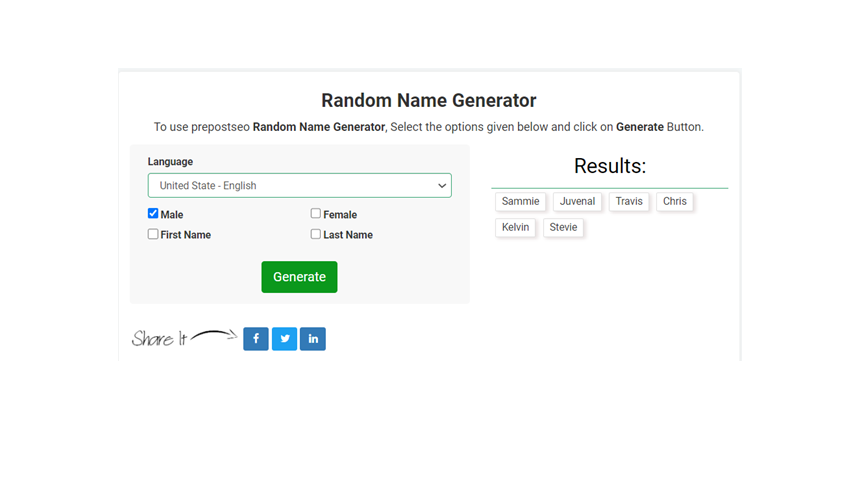Technology
Best Tool for Random Street Address Generator Online

It is difficult to properly demonstrate the value of credit cards and online purchases. Both account holders and the card itself are checked for information during the transaction. The identification code, card number, and expiration date are all included in this information.
People feel the need to cover their original address much of the time. However, there are plenty of websites including the financial websites especially ask for an address for security purposes such as billing, registration etc.
People are also uncomfortable disclosing their addresses, so with the aid of any tools, they need to create a false address generator or random address generator.
What is a random street address generator and what does it use for?
A random street address generator is a technology that generates a fictitious address, also known as a fake address generator. With the old and original one, this current address has little in particular.
There are number of websites that ask you for your personal information before offering their services. They would ask for your name and email, for example. The list is just not stopping there.
You will be questioned for your bank information and a lot of other data that you may not be comfortable discussing with a third party. Ok, you can use these bogus address generators in those circumstances.
For example, whether it’s legal or not, questions occur. It completely depends on the tool’s use. If you use it to stop any harm from financial hackers, the use of such a tool is totally legitimate.
If you are trying to discourage scammers and cyber fraud, etc., it is also legitimate. It should be common knowledge that it is totally illegal if you use it yourself to build a scam or hack another device.
The techno remedy for those who feel nervous and need to conceal their original address is the False Address Generator. There is also the need for current times when your data are ready for a lot of scammers to the peak.
Fake street address generators
We have generated a list of the top few bogus address generators.
1. Fakexy
This site is a detailed program. Along with switching the URL, this website creates a full profile. People who want to update their Canadian address should certainly look into this tool.
It will send you numbers for social security, financial records, and whatever. The place of your choosing may be selected. There are a number of common locations and countries, such as the UK, California, Brazil, and Canada in particular.
2. Fakena
Fakena is a platform that has an edge over many other generators with false addresses. It is easy to find the address location on Google maps.
The address created would normally be from the USA, but you may also pick other locations such as Brazil or Canada.
The great thing is that you will build an address for 3 days. After this time, the profile will automatically be deleted.
3.Prepostseo
It’s another website that generates a random address for different countries. Along with the address, it generates additional information just like E-mail, credit card details, Employment details, Internet details, and so on.
This is a handy tool for the users who are looking to generate details for registration as some of the websites needs complete detail of a user.
4. Getfakedata
Getfakedata will produce the address of any given position immediately. Thus, it has become easy to generate a false profile by this software.
There will be a new name, address, credit card number, passwords, and bank information for this false identity.
5. Fake it
One of the top searches for creating a fake address is Fake. All you have to do is simply open this website and start generating a random address in case you simply do not want to share your personal information on the website.
There are several generators and there are a number of choices for this method. A false name, credit card number, fake IBAN number, etc. may be created.
A special aspect that this website provides is that a false company or identity card may also be produced. It’ll just seem like the original.
6. Freelancer cl
For the purposes of generating a fake address, this is another very great guide. The place of your choice may be picked. You may pick Canada, for instance, as well. The website, as the name implies, is mostly used by freelancers.
7. random Name Generator
It is a random address generator used worldwide that generates a false identity. Fake identities, false bank credentials, and fake Email addresses compose of this persona. This may be used to mitigate the risk since it gives the original address little to no access.
8. Fake address Generator
To stop scammers, this website helps you to falsify the information you want to conceal. The location and parameters you will have to pick and it creates a false profile. If you close the browser, the profile also vanishes. The options offered for HTML Excel sheets are also provided.
9. Faker
It is a Python package that produces a false identity for you. For that reason, this website is a fantastic tool anytime you need to produce a fake address or want to create a fake text.
Conclusion
Above is a full overview of what bogus address generator technology is used for, and the first-class websites that have those services.
In addition to the measures that are definitely stated out, each of these web pages has its respective characteristics; select either of them to get links to your chosen website.
Postal codes are one of the primary details checked by the AVS, and they differ from one area to another. Therefore, although the area does not suit, it prevents users from spam attempts.
With the emergence of online economic scams, the method of address authentication was born to reduce the threat. This will provide protection against illegal actions and strengthen customer relationships.
While a personal credit card is accepted, any details that include a position in the business database are reviewed by the price processor; if the details are not in shape, such a purchase will not be necessary.
Technology
Telecom Operators to Issue 14-Day Notice Before SIM Disconnection

By Adedapo Adesanya
Telecommunications operators in Nigeria will now be required to give subscribers a minimum of 14 days’ notice before deactivating their SIM cards over inactivity or post-paid churn, following a fresh proposal by the Nigerian Communications Commission (NCC).
The proposal is contained in a consultation paper, signed by the Executive Vice Chairman and Chief Executive Officer of the NCC, Mr Aminu Maida, and titled Stakeholders Consultation Process for the Telecoms Identity Risks Management Platform, dated February 26, 2026, and published on the Commission’s website.
Under the proposed amendments to the Quality-of-Service (QoS) Business Rules, the Commission said operators must notify affected subscribers ahead of any planned churn.
“Prior to churning of a post-paid line, the Operator shall send a notification to the affected subscriber through an alternative line or an email on the pending churning of his line,” the document stated.
It added that “this notification shall be sent at least 14 days before the final date for the churn of the number.”
A similar provision was proposed for prepaid subscribers. According to the Commission, operators must equally notify prepaid customers via an alternative line or email at least 14 days before the final churn date.
Currently, under Section 2.3.1 of the QoS Business Rules, a subscriber’s line may be deactivated if it has not been used for six months for a revenue-generating event. If the inactivity persists for another six months, the subscriber risks losing the number entirely, except in cases of proven network-related faults.
The new proposal is part of a broader regulatory review tied to the rollout of the Telecoms Identity Risk Management System (TIRMS), a cross-sector platform designed to curb fraud linked to recycled, swapped and barred mobile numbers.
The NCC explained in the background section of the paper that TIRMS is a secure, regulatory-backed platform that helps prevent fraud stemming from churned, swapped, barred Mobile Station International Subscriber Directory Numbers in Nigeria.
It said this platform will provide a uniform approach for all sectors in relation to the integrity and utilisation of registered MSISDNs on the Nigerian Communications network.
In addition to the 14-day notice requirement, the Commission also proposed that operators must submit details of all churned numbers to TIRMS within seven days of completing the churn process, strengthening oversight and accountability in the system.
The consultation process, which the Commission said is in line with Section 58 of the Nigerian Communications Act 2003, will remain open for 21 days from the date of publication. Stakeholders are expected to submit their comments on or before March 20, 2026.
Technology
Silverbird Honours Interswitch’s Elegbe for Nigeria’s Digital Payments Revolution

By Modupe Gbadeyanka
The founder of Interswitch, Mr Mitchell Elegbe, has been honoured for pioneering Nigeria’s digital payments revolution.
At a ceremony in Lagos on Sunday, March 1, 2026, he was bestowed with the 2025 Silverbird Special Achievement Award for shaping Africa’s financial ecosystem.
The Silverbird Special Achievement Award recognises individuals whose innovation, vision, and sustained impact have left an indelible mark on society.
Mr Elegbe described the award as both humbling and symbolic of a broader journey, saying, “This honour represents far more than a personal milestone. It reflects the courage of a team that believed, long before it was fashionable, that Nigeria and Africa could build world-class financial infrastructure.”
“When we started Interswitch, we were driven by a simple but powerful idea that technology could democratise access, unlock opportunity, and enable commerce at scale.
“This recognition by Silverbird strengthens our resolve to continue building systems that empower businesses, support governments, and expand inclusion across the continent,” he said when he received the accolade at the Silverbird Man of the Year Awards ceremony attended by several other dignitaries, whose leadership and contributions continue to shape national development and industry transformation.
In 2002, Mr Elegbe established Interswitch after he was inspired by a bold conviction that technology could fundamentally redefine how value moves within and across economies.
Under his leadership, the company has evolved into one of Africa’s foremost integrated payments and digital commerce companies, powering financial transactions for governments, banks, businesses, and millions of consumers.
Today, much of Nigeria’s electronic payments ecosystem traces its foundational architecture to the systems and rails established under his leadership.
“Mitchell’s journey is inseparable from Nigeria’s digital payments evolution. His foresight and resilience helped establish foundational infrastructure at a time when the ecosystem was still nascent.
“This recognition affirms not only his personal legacy, but the broader impact of Interswitch in enabling commerce and strengthening financial systems across Africa,” the Executive Vice President and Group Marketing and Communications for Interswitch, Ms Cherry Eromosele, commented.
Technology
SERAP Seeks FCCPC Probe into Big Tech’s Impact on Nigeria’s Digital Economy

By Adedapo Adesanya
The Socio-Economic Rights and Accountability Project (SERAP) has called on the Federal Competition and Consumer Protection Commission (FCCPC) to urgently investigate major global technology companies over alleged abuses affecting Nigeria’s digital economy, media freedom, privacy rights and democratic integrity.
In a complaint addressed to the chief executive of FCCPC, Mr Tunji Bello, the group accused Google, Meta (Facebook), Apple, Microsoft (Bing), X, TikTok, Amazon and YouTube of deploying opaque algorithms and leveraging market dominance in ways that allegedly undermine Nigerian media organisations, businesses, and citizens’ rights.
The complaint, signed by SERAP Deputy Director, Mr Kolawole Oluwadare, urged the commission to take measures necessary to urgently prevent further unfair market practices, algorithmic influence, consumer harm and abuses of media freedom, freedom of expression, privacy, and access to information.”
SERAP also asked the FCCPC to convene a public hearing to investigate allegations of algorithmic discrimination, data exploitation, revenue diversion, and anti-competitive conduct involving the tech giants.
According to the organisation, dominant digital platforms now act as private gatekeepers of Nigeria’s information and business ecosystem, wielding enormous influence over public discourse and market competition without sufficient transparency or regulatory oversight.
“Millions of Nigerians rely on these platforms for news, information and business opportunities,” SERAP stated, warning that opaque algorithms and offshore revenue extraction models pose both economic and human rights concerns.
The group argued that the alleged practices threaten media plurality, consumer protection, privacy rights, and the integrity of Nigeria’s forthcoming elections.
SERAP pointed to actions taken by the South African Competition Commission, which investigated Google over alleged bias against local media content, adding that the South African probe reportedly resulted in measures including algorithmic transparency requirements, compliance monitoring and financial remedies.
SERAP urged the FCCPC to take similar steps to safeguard Nigerian media and businesses.
The organisation maintained that if established, the allegations could amount to violations of Sections 17 and 18 of the Federal Competition and Consumer Protection Act (FCCPA), which prohibit abuse of market dominance and anti-competitive conduct.
SERAP stressed that the FCCPC has statutory authority to investigate and sanction conduct that substantially prevents, restricts or distorts competition in Nigeria.
It also warned that failure by the Commission to act promptly could prompt the organisation to pursue legal action to compel regulatory intervention.
Citing concerns reportedly raised by the Nigerian Press Organisation (NPO), SERAP said big tech companies have fundamentally altered Nigeria’s information environment, creating what it described as a structural imbalance of power that threatens the sustainability of professional journalism.
Among the allegations listed are: Algorithms controlled outside Nigeria determining content visibility, monetisation of Nigerian news content without proportionate reinvestment, offshore extraction of advertising revenues, limited discoverability of Nigerian websites and platforms, and lack of transparency in ranking and recommendation systems.
SERAP argued that declining revenues in the Nigerian media industry have led to shrinking newsrooms, closure of bureaus, and the emergence of news deserts, weakening journalism’s constitutional role in democratic accountability.
The organisation further warned that algorithmic opacity and data-driven micro-targeting could influence voter exposure to information ahead of Nigeria’s forthcoming elections, raising concerns about electoral fairness and transparency.
-

 Feature/OPED6 years ago
Feature/OPED6 years agoDavos was Different this year
-
Travel/Tourism10 years ago
Lagos Seals Western Lodge Hotel In Ikorodu
-

 Showbiz3 years ago
Showbiz3 years agoEstranged Lover Releases Videos of Empress Njamah Bathing
-

 Banking8 years ago
Banking8 years agoSort Codes of GTBank Branches in Nigeria
-

 Economy3 years ago
Economy3 years agoSubsidy Removal: CNG at N130 Per Litre Cheaper Than Petrol—IPMAN
-

 Banking3 years ago
Banking3 years agoSort Codes of UBA Branches in Nigeria
-

 Banking3 years ago
Banking3 years agoFirst Bank Announces Planned Downtime
-

 Sports3 years ago
Sports3 years agoHighest Paid Nigerian Footballer – How Much Do Nigerian Footballers Earn












